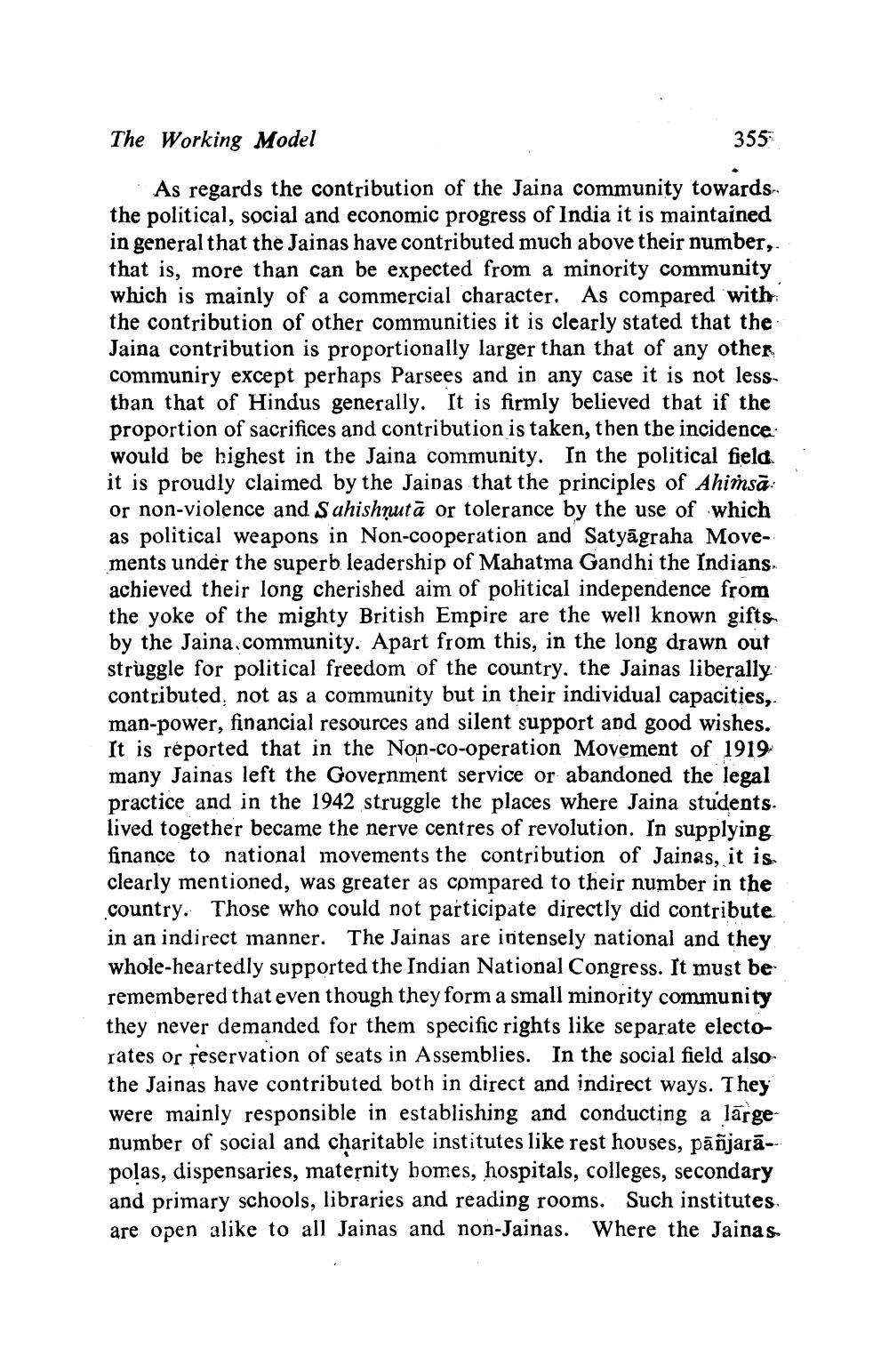________________
The Working Model
355
As regards the contribution of the Jaina community towards the political, social and economic progress of India it is maintained in general that the Jainas have contributed much above their number, that is, more than can be expected from a minority community which is mainly of a commercial character. As compared with the contribution of other communities it is clearly stated that the Jaina contribution is proportionally larger than that of any other communiry except perhaps Parsees and in any case it is not lessthan that of Hindus generally. It is firmly believed that if the proportion of sacrifices and contribution is taken, then the incidence would be highest in the Jaina community. In the political field it is proudly claimed by the Jainas that the principles of Ahimsa: or non-violence and S ahishnutā or tolerance by the use of which as political weapons in Non-cooperation and Satyāgraha Movements under the superb leadership of Mahatma Gandhi the Indians achieved their long cherished aim of political independence from the yoke of the mighty British Empire are the well known gifts by the Jaina.community. Apart from this, in the long drawn out struggle for political freedom of the country, the Jainas liberally contributed, not as a community but in their individual capacities, man-power, financial resources and silent support and good wishes It is reported that in the Non-co-operation Movement of 1919 many Jainas left the Government service or abandoned the lega practice and in the 1942 struggle the places where Jaina students. lived together became the nerve centres of revolution. In supplying finance to national movements the contribution of Jainas, it is clearly mentioned, was greater as compared to their number in the country. Those who could not participate directly did contribute in an indirect manner. The Jainas are intensely national and they whole-heartedly supported the Indian National Congress. It must be remembered that even though they form a small minority community they never demanded for them specific rights like separate electorates or reservation of seats in Assemblies. In the social field also the Jainas have contributed both in direct and indirect ways. They were mainly responsible in establishing and conducting a lārgenumber of social and charitable institutes like rest houses, pāñjarā-- polas, dispensaries, maternity bomes, hospitals, colleges, secondary and primary schools, libraries and reading rooms. Such institutes are open alike to all Jainas and non-Jainas. Where the Jainas




